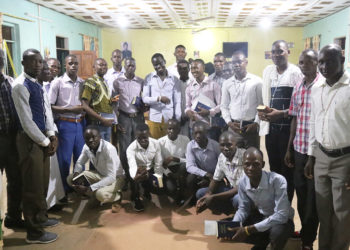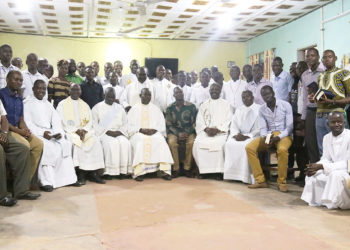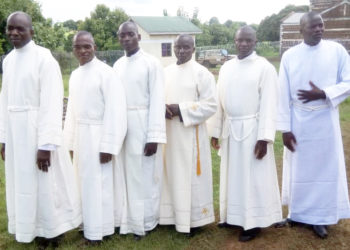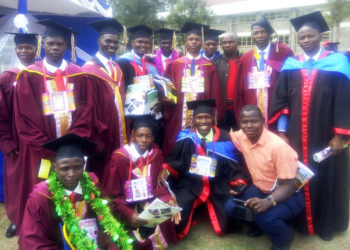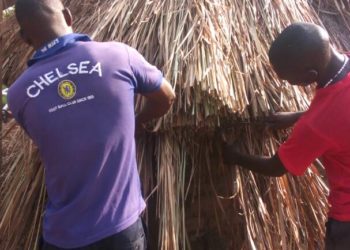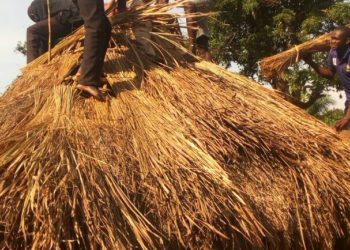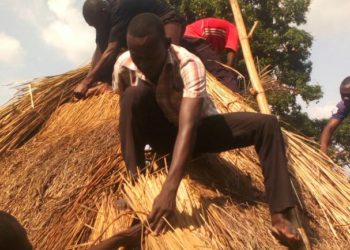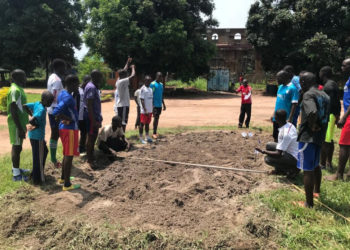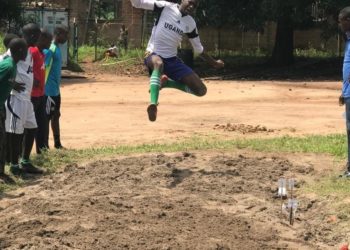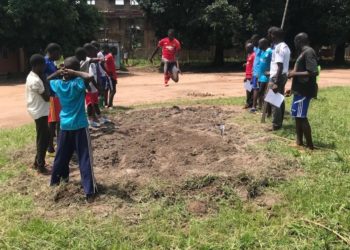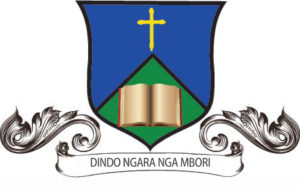
The seminary, under the patronage of the great saint, is an institution of the Catholic Diocese of Tombura- Yambio South Sudan and a noble initiative of His Lordship Barani Eduardo Hiiboro. The Bishop, a great intellectual himself and known for being a visionary with big dreams for the Diocese, felt the need to have a Philosophicum in the Diocese that would cater for academic as well as spiritual welfare of the seminarians within the Diocese and neighboring Dioceses as well.
Background
How did the Catholic Diocese of Tombura-Yambio end up being home to this great milestone in the academic field?
In 2002, Rome observed that the national philosophy seminary in Juba had huge persistent administrative challenges. This consequently led to the closure of the Juba philosophy Seminary that was in Muniki. As the Church is a mother, she could not close all windows at once thus calling upon all Catholic dioceses in South Sudan and Sudan to bring their students into one place and continue their formation.
The diocesan vocation commission of the Catholic Diocese of Tombura-Yambio effectively convened a meeting on 15 August 2012 attended by priests, opinion leaders and family representatives. The meeting ended with a collective concern to engage students in systematic and serious intellectual formation and save their vocations. The commission resolved to identify a place, engage qualified and competent lecturers to kick-start and lay a foundation of a systematic philosophy learning institution, thus the birth of “St. John Paul II Philosophicum Seminary”.
The Philosophicum was founded six years ago on May 27, 2013 with the primary intention of the training and formation of Catholic priests.
It is an affiliate institute of Consolata Institute of Philosophy, Nairobi and by the end of their philosophical studies, the seminarians get the BA in philosophical and religious studies of the Catholic University of Eastern Africa (CUEA) and Urbarnian University in Rome. The Philosophicum boasts of great intellectuals and scholars, its first fruits being six deacons who will be ordained later in the year.
Academic progress
This institution opened on May 27, 2013 with 23 students. The Rector, Rev Fr John Ngbapia has served as the seminary’s rector since its inception. In his tenure, he has formed dozens of candidates in their vocation journey while shaping lives of other bright young men who are pursuing different careers.
The Philosophicum has a well-developed academic curriculum that covers Diploma and degree programs with lecturers derived from around East Africa.
The curriculum covers philosophical, religious, social sciences and languages.
Admission Criteria
Candidates are carefully chosen by their respective parish priests and must have the required academic qualifications obtaining South Sudan Certificate of education and undergone the orientation course period in the propaedeutic formation in Mupoi, another great foundation of His Lordship Barani Eduardo. The Diocesan Vocation Animator approves the candidate and forwards the names to the Bishop for the ultimate approval and blessing. The seminarians from other Dioceses also have to get approval from their Diocesan Vocation animator who in consultancy with the CDTY animator approves the candidates with the Bishop giving the final approval.
Motto
The Motto of this seminary is in the local language – Pazande “Dindo ngara and Mbori” meaning “God is the foundation of our strength.” The theme resonates well as the seminary has withstood the test of time amidst insecurity challenges and other challenges. Indeed God has been the foundation of its strength.
The institution is now in its 6 years of existence and has graduated 45 students some currently in Theology. Currently has 42 students from Tombura- Yambio and Rumbek Dioceses respectively.
Patron Saint
The seminary is under the patronage of St John Paul II who was the Bishop of Rome and head of the Roman Catholic Church (1978-2005). Born Karol Josef Wojtyla in May 18,1920 in Wadowice, Poland, he was the first non-Italian Pope in over 400 years. During his vocation and papacy, he visited over 100 countries and he initiated the World Youth Day in 1985.
He died in April 2, 2005, beatified in May 1, 2011 and canonized in April 27, 2014.
While it is in the tradition of the Catholic Church to celebrate feast days on the anniversary of their deaths, that of John Paul II is celebrated on the anniversary of his Papal inauguration.
The festivities will commence with the celebration of the Holy Mass followed by entertainment culminating with dinner.

